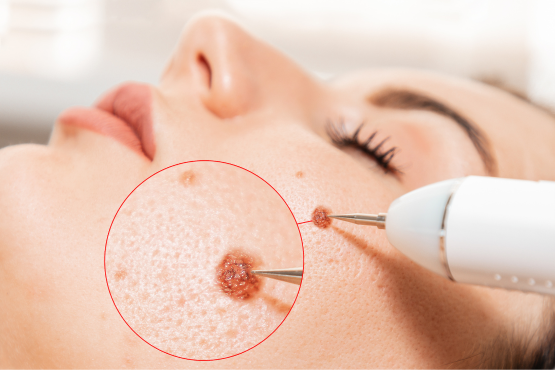Pigmentation is a common skin condition that can affect individuals of all ages and skin types. It occurs when there is an excess production of melanin in the skin, leading to the formation of dark spots or patches.
While pigmentation can be unsightly and cause self-consciousness, the good news is that it can go away with the right treatment and preventative measures. In this article, we will discuss when pigmentation can go away and how to speed up the process.
Factors Affecting the Duration of Pigmentation
The duration of pigmentation can vary from person to person depending on various factors, including:
The Type of Pigmentation
The type of pigmentation can affect how long it takes for pigmentation to go away. There are different types of pigmentation, including:
Sunspots or Age Spots: These are caused by sun damage and can take several months to years to fade away.
Melasma: This type of pigmentation is caused by hormonal changes and can take several months to years to fade away.
Post-Inflammatory Hyperpigmentation (PIH): This type of pigmentation is caused by inflammation and can take several months to fade away.
Severity of Pigmentation
The severity of pigmentation can also affect how long it takes for pigmentation to go away. The deeper and darker the pigmentation, the longer it can take to fade away.
Treatment Plan
The treatment plan can also affect how long it takes for pigmentation to go away. Effective treatment options can speed up the process of pigmentation removal.
How to Speed Up the Process of Pigmentation Removal
If you are looking to speed up the process of pigmentation removal, there are several things you can do:
Sun Protection
Sun exposure is one of the main causes of pigmentation. It is important to protect your skin from the sun by wearing protective clothing, using a broad-spectrum sunscreen, and seeking shade during peak hours.
By broad-spectrum sunscreen, we mean on that offers SPF45 protection against UVA & UVB rays, is non-greasy in texture, and does not leave a white cast. A sunscreen made with raspberries, carrot & papaya extracts and shea butter not only protects against sunburn & suntan, but also helps skin heal from sun damage. Check it out here.
Skincare Routine/Topical Treatments
Establishing a regular skincare routine can help to speed up the process of pigmentation removal. Incorporating products that contain active ingredients such as vitamin C, BRIGHT Oléoactif®, and cica (centella asiatica) or gotu koka, can help inhibit the production of melanin, promote skin cell turnover and reduce the appearance of pigmentation.
Laser Therapy
Laser therapy can also be used to speed up the process of pigmentation removal. This treatment uses targeted beams of light to break up the pigmentation and stimulate the production of new, healthy skin cells.
Chemical Peels
Chemical peels can also be effective in speeding up the process of pigmentation removal. This treatment involves the application of a chemical solution to the skin, which causes the outer layer of skin to peel away.
Microdermabrasion
Microdermabrasion is a non-invasive treatment that can help to speed up the process of pigmentation removal. This treatment uses a special device to exfoliate the outer layer of skin, removing pigmentation and promoting the growth of new skin cells.
Professional Skin Care Treatments
Professional skin care treatments such as facials and micro-needling can also help to speed up the process of pigmentation removal. These treatments work by promoting skin cell turnover and stimulating collagen production, which can help to reduce the appearance of pigmentation.
When Does Pigmentation Go Away?
The duration of pigmentation can vary depending on the type of pigmentation, severity, and treatment plan. With the right treatment and preventative measures, pigmentation can go away. In some cases, pigmentation may fade away on its own over time.
However, it is important to note that pigmentation may never completely disappear, especially in cases of deep or severe pigmentation.
For sunspots or age spots, it can take several months to years for the pigmentation to fade away completely. With the use of sunscreen and other preventative measures, it is possible to prevent the formation of new sunspots and to reduce the appearance of existing ones.
For melasma, it can take several months to years for the pigmentation to fade away completely. Hormonal changes can trigger melasma, so it is important to maintain a healthy lifestyle and to manage stress levels to prevent the recurrence of melasma.
For post-inflammatory hyperpigmentation (PIH), it can take several months for the pigmentation to fade away completely. PIH is often caused by acne, so it is important to treat acne promptly to prevent the formation of new PIH.
In summary, pigmentation can go away with the right treatment and preventative measures. The duration of pigmentation can vary depending on various factors such as the type of pigmentation, severity, and treatment plan.
With the use of sun protection, skincare routine, topical treatments, laser therapy, chemical peels, microdermabrasion, and professional skin care treatments, it is possible to speed up the process of pigmentation removal.
It is always recommended to consult a dermatologist for personalized advice on the best treatment plan for your specific type of pigmentation.



